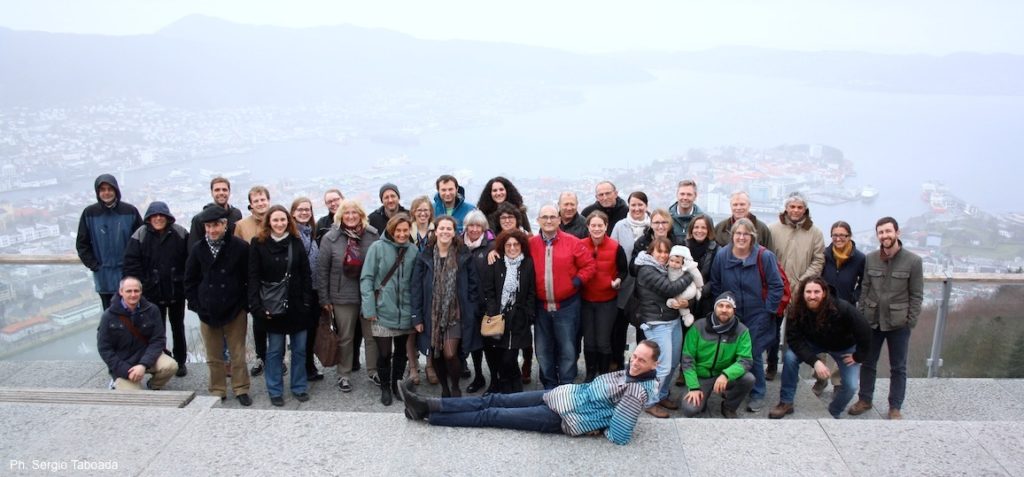About 50 delegates from the SponGES wider consortium, its advisory board, interested parties and the EC joined the project kickoff meeting in Bergen.
The event featured an initial Open Session, followed by restricted technical meetings. It covered the overall structure of each SponGES’ research line, helped define details of the upcoming joint research work and unveiled the large array of operational and technical facilities available within the consortium. Opportunities for valuable synergies with other EU-funded initiatives were also highlighted.
During the Open Session, project coordinator Hans Tore Rapp recalled the long path and joint effort that led to SponGES, as well as the rationale behind it.
Sponges are ancient and diverse organisms, ecologically important and key to innovation in the Blue Biotechnology area. Moreover, deep sea sponge grounds are rich in biodiversity and represent unique archives for climate records. Nonetheless, the conservation status of deep-sea sponges is too often overlooked and several knowledge gaps need be addressed to ensure the sustainability of these ecosystems, including: When did they form, where can we find them today and what can we expect for the future? Which goods and services are they providing regionally and globally? How do they function and react to individual and cumulative stressors?
SponGES will address these gaps to strengthen the knowledge base, improve capacity and innovation, develop tools for conservation and sustainable exploitation. Finally, and most important, SponGES will work to ensure that research has a tangible impact - for the environment and for society as a whole.
